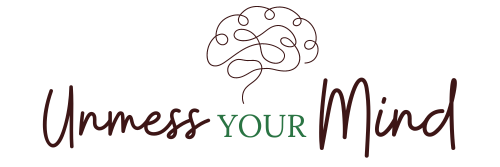

Are You Wondering if Your Own Childhood is Impacting Your Parenting?
Or, do you simply want to do it differently than your parents did, and you have no template for how to do that? Maybe you’ve even read a few parenting books and nothing is really helping; nothing is really “sticking.”
I’m NOT a parenting expert (trust me, you could ask my kids.)
What I can help you with is addressing your own childhood trauma—whether that involves significant, life-altering trauma (Big T trauma) or more subtle, cumulative experiences (little t trauma.) If you’re unsure about the difference, feel free to explore this blog I wrote. What I’ve learned is that unresolved childhood trauma plays a major role in how we parent. As you begin to process your own “stuff,” you’ll become less reactive and more present in the moment with your child.
Interestingly, even though most of my clients didn’t initially reach out to me specifically for parenting issues, challenges related to childhood trauma and parenting often come up in our work together. So, even if this doesn’t fully align with your situation, trust that we can still make meaningful progress. (And by the way, thanks for reading this far!)
We love our parents, but that doesn’t mean we want to parent exactly the way they did. That inner conflict—Is it a betrayal to want to do things differently? or They tried their best, so why do I feel differently?—can be part of the mental “mess” we experience.
Here’s what I’ve seen in my own therapeutic journey and in the work with my clients: we spend so much time justifying or understanding our parents’ actions that we often overlook the real impact those actions had on us. It’s important to recognize that many situations fall into the “both/and” category instead of “either/or.” Our parents’ actions may have been well-intentioned, AND those actions still had a negative impact on us as children, contributing to unresolved childhood trauma.
At Unmess Your Mind, we work together to untangle that inner conflict so you can parent with clarity, confidence, and emotional freedom. Let’s work through the mess, so you can unmess it.
Are You Wondering if Your Own Childhood is Impacting Your Parenting?
Or, do you simply want to do it differently than your parents did, and you have no template for how to do that? Maybe you’ve even read a few parenting books and nothing is really helping; nothing is really “sticking.”
I’m NOT a parenting expert (trust me, you could ask my kids.)
What I can help you with is addressing your own childhood trauma—whether that involves significant, life-altering trauma (Big T trauma) or more subtle, cumulative experiences (little t trauma.) If you’re unsure about the difference, feel free to explore this blog I wrote. What I’ve learned is that unresolved childhood trauma plays a major role in how we parent. As you begin to process your own “stuff,” you’ll become less reactive and more present in the moment with your child.
Interestingly, even though most of my clients didn’t initially reach out to me specifically for parenting issues, challenges related to childhood trauma and parenting often come up in our work together. So, even if this doesn’t fully align with your situation, trust that we can still make meaningful progress. (And by the way, thanks for reading this far!)
We love our parents, but that doesn’t mean we want to parent exactly the way they did. That inner conflict—Is it a betrayal to want to do things differently? or They tried their best, so why do I feel differently?—can be part of the mental “mess” we experience.
Here’s what I’ve seen in my own therapeutic journey and in the work with my clients: we spend so much time justifying or understanding our parents’ actions that we often overlook the real impact those actions had on us. It’s important to recognize that many situations fall into the “both/and” category instead of “either/or.” Our parents’ actions may have been well-intentioned, AND those actions still had a negative impact on us as children, contributing to unresolved childhood trauma.
At Unmess Your Mind, we work together to untangle that inner conflict so you can parent with clarity, confidence, and emotional freedom. Let’s work through the mess, so you can unmess it.
